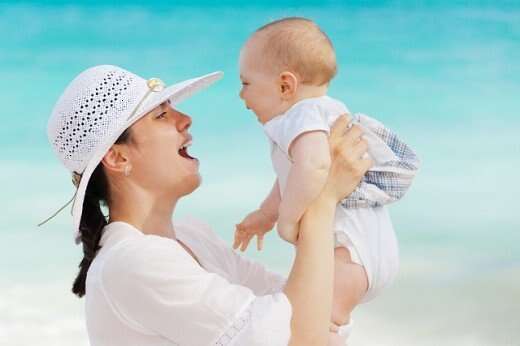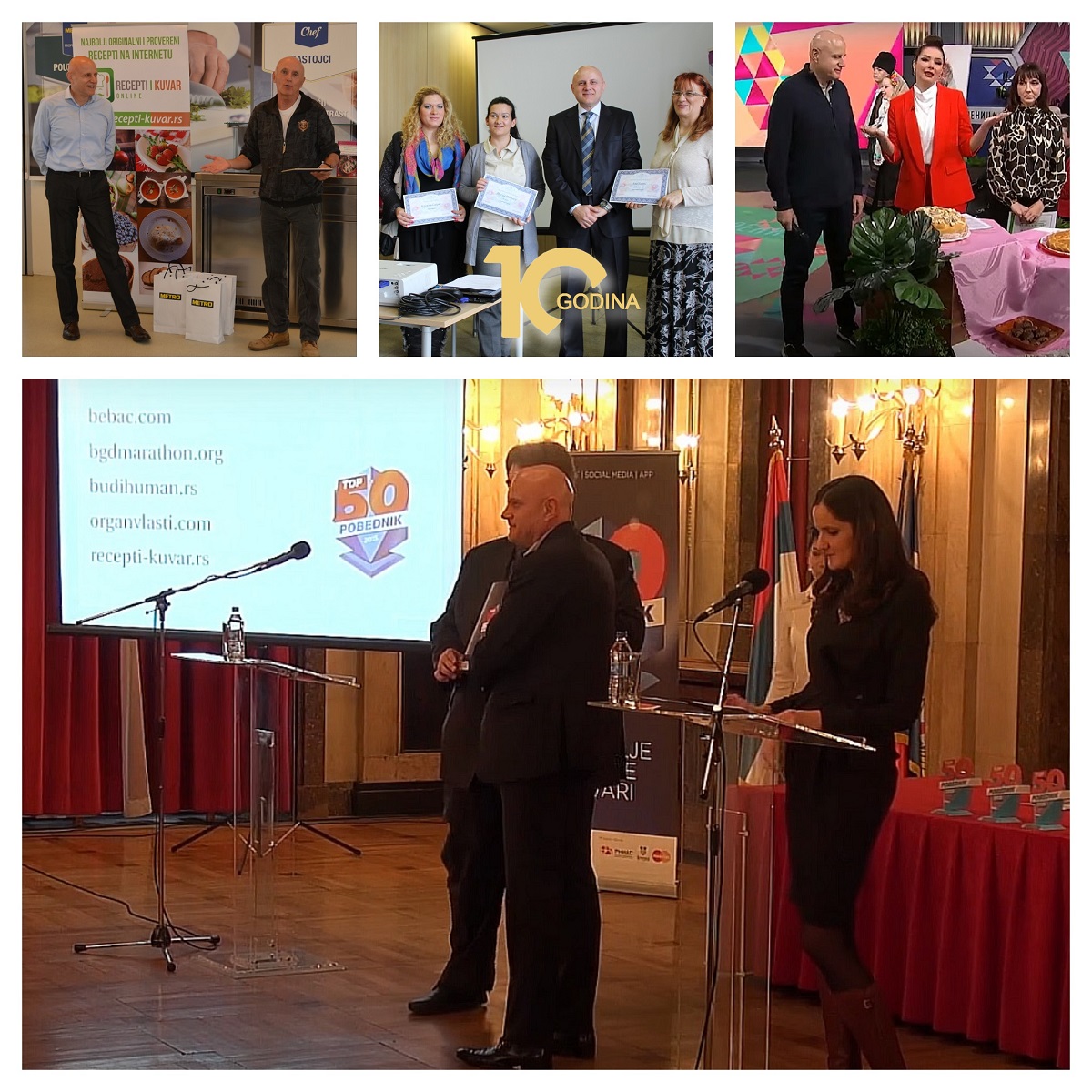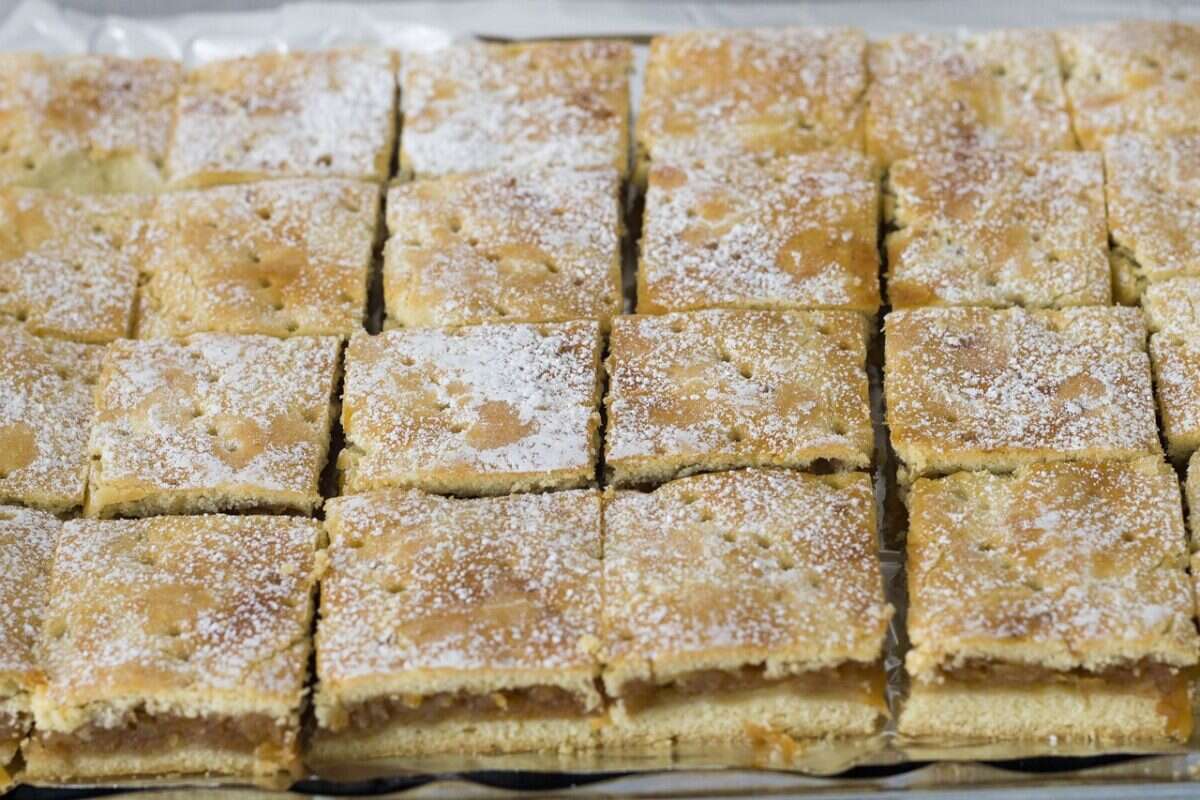How do babies cope with extreme heat? Your baby was born in the middle of summer! Is the heat dangerous for her? The answer is: it can be, if the baby is not taking in enough fluids...
The main organ that regulates water circulation in the body is the kidney. Given that it is not yet mature in the first days of life, the body of a newborn should not be burdened with a large amount of liquid. Therefore, nature made sure that the first mother's milk was scarce, "like water". It is called colostrum and is full of important nutrients and protective substances, while it contains just the amount of water the baby needs. A newborn baby will take colostrum in smaller portions, but more often than "mature" milk in the later period. The baby takes water into the body through milk, and after five to six months, also through food.
In addition to the kidneys, water loss also occurs through the skin - through sweating, as well as through breathing - in the form of water vapor. If the outside temperature is too high, the newborn overheats, because his ability to sweat is low. A newborn's thermoneutral environment is that range of temperature and humidity in which the newborn, with a normal body temperature (37-37,4 degrees rectally or 36-36,9 degrees under the armpit), has the lowest oxygen consumption. For a newborn, the thermoneutral temperature of the environment, with a relative humidity of 50 percent and no air flow, is from 31 to 34 degrees - when the child is naked, and about 24 degrees when he is normally dressed and covered with a cotton blanket.
In contrast to hyperthermia, which occurs as a result of overheating of the environment, febrility implies an elevated body temperature due to a disturbed "thermostat" in the brain, and is most often the result of an infection.
If you notice that the baby's skin is warmer than usual, measure its body temperature. If it is elevated, the following situations may be involved:
1. Overheating
- high rectal temperature
– warm hands and feet
- the skin temperature on the abdomen is two degrees higher than the skin temperature on the hand
– ruddy skin
– healthy appearance
2. Feverishness
- high rectal temperature
- cold hands and feet
- the skin temperature on the abdomen is three degrees higher than the skin temperature on the hand
- pale skin
- sick appearance
What to do?
Overheated babies (rectal temperature over 37,5 degrees) are most often melted or kept longer in an environment whose temperature is higher than thermoneutral. These errors in care should be quickly eliminated, so if the temperature drops - no other treatment is needed. This means that the baby - if it was outside, in the heat or in an overheated vehicle, should be brought into the shade and made comfortable (if it is sweaty - change its clothes) and must be watered or breastfed.
However, if the mentioned conditions were not present, and the child does not look well or the temperature does not drop even after an hour, the following conditions must be considered:
a) Infection - conduct a complete examination for infectious diseases.
b) Dehydration fever (usually in a child born at term, who is poorly nourished and has lost more than ten percent of his birth weight).
Should the baby be given water?
Unlike formula-fed infants, human-milk-fed infants have a low salt load. Therefore, it should not be given extra water, even in very hot climates. Exceptions are cases: if he is fed with formula or cow's milk, if he loses a large amount of water during the illness (diarrhea, vomiting, high temperature), or if he gets too warm.
Regularly giving water to the baby (in cases where it is not necessary) can lead to a decrease in the intensity of breastfeeding, or affect the appearance of irregular habits in the baby and reduce the supply of milk to the breast. In addition, water in some regions can be polluted, and a non-sterile feeding bottle can become a source of infection. Otherwise, water reduces the protective properties and nutritional value of mother's milk, which is associated with more frequent occurrence of newborn jaundice.
Dehydration and jaundice
Newborn jaundice is a common occurrence in dehydrated children. After a single rehydration, such infants need to be breastfed more often. They should not be drunk continuously, considering that the yellow color - bilirubin, which is not soluble in water, is not removed from the body through urine, but through stool. Factors from human milk play an important role in this.
If there is a need to give the baby water - give a small amount with a spoon, because the amount of water that the baby drinks from the bottle will surely disturb the next feeding.
How to fight the summer heat?
Try to provide the baby with a thermoneutral environment. To prevent it from being too hot in the apartment, close the blinds before the sun burns in the windows, ventilate the apartment at night and in the morning, and close the windows during the day so that the heat does not enter inside. The air conditioner is not recommended for the rooms where the baby stays, because it will almost certainly catch a cold, but it can be in the next room and indirectly cool the baby's room as well. The baby should never be taken outside when it is very hot, and especially it should not be exposed to direct sunlight, because it is extremely dangerous for it. Walks are recommended in the morning and early evening, in the "colorful shade", with a mandatory hat on your head.
Otherwise, when she is hot, the baby sweats, which is why small, reddish rashes often break out on her skin, which will go away spontaneously if the cause of the increased sweating is removed. If the measles is severe, it is coated with "milk of lime" (white liquid with zinc), which dries the skin changes, and can be found in any pharmacy. It also helps with mosquito bites. Bathing in lukewarm water will certainly be pleasant, but the most important form of fighting against all complications due to the heat remains sufficient fluid intake.
Source: Zelenaucionica.com, author: Prim. Dr. Maja Skender, pediatrician
READ: WHERE CAN I BUY THE BOOK TRADITIONAL RECIPES OF HOME SERBIAN CUISINE?
Read more:
The best recipes on the Android app for your mobile phone or tablet!
The Recipes and Kuvar online portal is ranked among the TOP 50 websites in Serbia!
If you are interested in all of ours recipes, click the link: RECIPES. Collections of the best recipes of our associates can be found in the cook section, if you want to read more, click on the link: COOK. If you want to see our front page, click on the link: RECIPES AND COOK ONLINE homepage.
Don't miss a recipe - Recipes and cookbook online on Facebook. Stay tuned, follow the Recipes and Cookbook twitter notifications!








